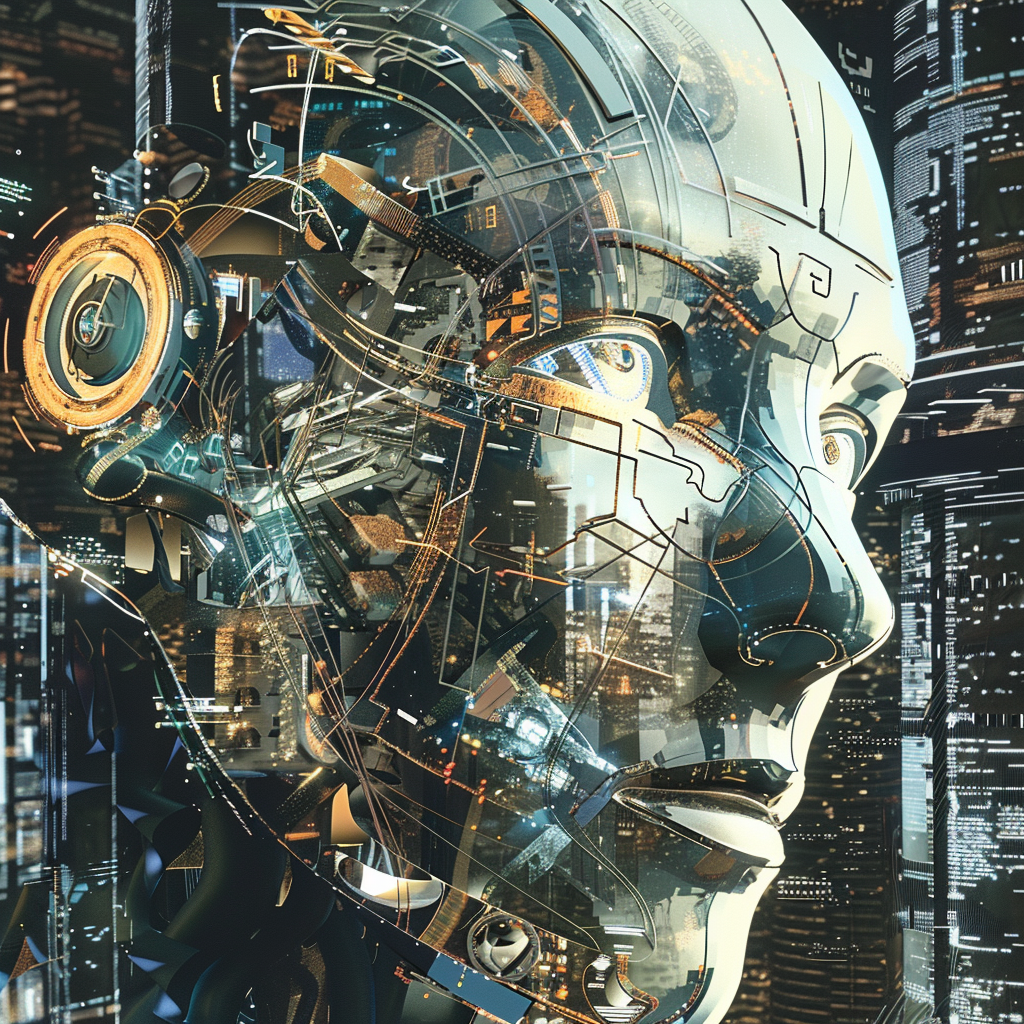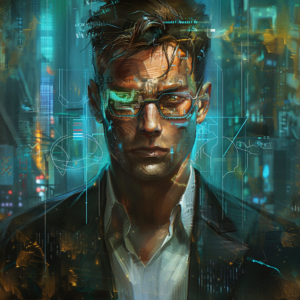
In a brave new era, humanity had transcended its biological confines. Nanobots coursed through veins, bionic limbs surpassed the prowess of natural muscles, and augmented brains performed computations at a speed that would put supercomputers to shame. Thus was birthed the Transhumanist Olympiad, a quadrennial extravaganza where this audacious symphony of flesh and machine was put on grand display.
It was the eleventh hour, quite literally, for the metropolis of Nova Gaia, as all timepieces paused at 11:11. The Great Chronometer in the city square stood defiantly still, its hands frozen in time as if mocking the relentless march of progress around it.
In the heart of this urban labyrinth, a teenager named Icarus darted through the crowd, his mechanical legs whirring in a blur of motion. He held an object carefully wrapped in tattered cloth; it hummed softly, an ancient lullaby drowned out by the city’s symphony of progress.
Icarus was a bright, obedient child, a poster boy for the transhuman era, groomed meticulously for the upcoming Olympiad. His physical enhancements included a pair of bionic legs designed for velocity, while cognitive upgrades fostered a mind as sharp as a blade, honed to outmatch even the most advanced AIs.
Yet, something flickered in his augmented eyes, a spark of rebellion. His perspective teetered on the edge of a precipice. Icarus stood tall, the city sprawling beneath him, a pulsating neural network he now perceived through the lens of the old-world relic clenched in his robotic grip—a simple, worn-out book titled “Human Spirit: The Undying Flame.”
His private thoughts echoed in the cacophonous silence of his mind, spiraling into a profound revelation. The city was a cathedral of innovation, but had it forsaken the human soul? This inner storm whirled, creating an undercurrent of unease that danced in tandem with his heartbeat.
The juxtaposition was too stark to ignore—the archaic tome against the backdrop of the technologically-drenched cityscape. The irony was not lost on Icarus. It was as if the universe conspired to hold up a mirror, reflecting the dichotomy of their world—an existence caught between past sentimentality and future ambitions.
Within Icarus, a profound struggle unraveled. He was on the precipice of defying the only reality he had ever known. Yet, in his grasp, he held the potential to awaken a slumbering sense of humanity within his contemporaries.
In the realm of speculative fiction, this would seem like the onset of a dramatic rebellion. But Icarus wasn’t a rebel—yet. He was a product of the era, a cog in the grand machine. Still, he understood the power of a single cog to halt or hasten an entire mechanism.
As the Olympiad dawned, Icarus found himself at the crossroads of compliance and defiance. With a breath, he stepped into the arena, the crowd roared, and the book pulsed with a life of its own against his metallic chest. His gaze lingered on the frozen Great Chronometer, its hands stuck at 11:11—a promise of change, perhaps?
The Olympiad was a spectacle of grandeur, a testament to human innovation. Yet, the events transpired under the watchful eyes of Icarus, who bore an aura of silent revolution. The applause resonated hollowly, the victories tasted bittersweet, and the spectacle of transhuman triumph seemed but a gleaming façade.
As the Olympiad concluded, Nova Gaia basked in the glow of triumphant transhumanism. Yet, beneath the luminescent neon lights, a subtle whisper of change was imminent. The Olympiad’s ending was not just a denouement of the games but also a prelude to a nascent uprising, a beacon of questions that yearned for answers. Would the city ever comprehend the depths of its own humanity, or would it succumb to the intoxicating allure of artificial perfection? The city lay asleep, oblivious to the winds of change ushered by a boy and his book.
Only time could tell, if only the Great Chronometer chose to move. But for Icarus, the ticking seconds held a promise, the echo of an unfinished narrative that stirred the human soul within his synthetic shell. As he looked ahead, he knew the journey was far from over—it was only the beginning.
No tags for this post.



